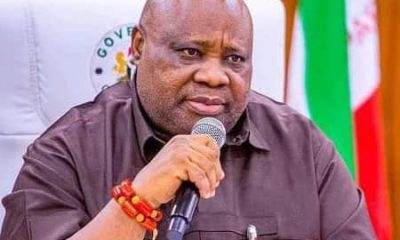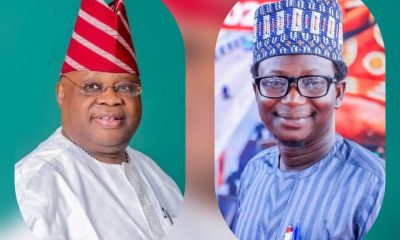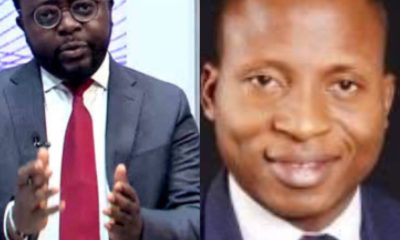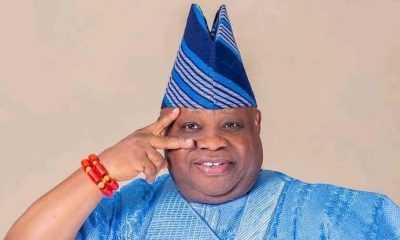Opinion
Fuel subsidy: what’s Really Going On? By abiodun KOMOLAFE

I am an angry Nigerian and those who know me must know why I have to be! As the pioneer Administrative Secretary of the _Afenifere Renewal Group_ (ARG), one of the major organizers of the famous _‘Occupy Nigeria’_ in 2012, yours sincerely can conveniently align his thoughts with a parody in Yoruba which explains the situation Nigeria has found herself in the last 60 years. It is called _‘subu-sere’._ Translated literally, it means ‘instability’. Of course, that’s why a Godwin Emefiele could imagine himself being a future president of Nigeria. It also defines the miraculous emergence and imposition of the so-called transport unions and their dreaded and untouchable leaders on a supposed Omoluabi society. But then, all these cataclysmic events and possibility of different backlashes are what the society must watch out for.
If we may ask, what’s really going on with the fuel subsidy regime? Well, this is a very big question but how the owners of Nigeria respond to it is the issue. Talking seriously, it requires sincerity, tact and straightforwardness, without which the country cannot move forward.
When public administration lends itself to dubious duplicity, it’s no doubt digging the future grave for the entire nation. Dubious political gladiators will only have to work a little to turn the situation around in their favour. The more reason it is incumbent upon the government to make public the beneficiaries of fuel subsidy from inception and let’s pay the Metropolitan Police to account for the money. As things stand, the list is not for everybody; and that’s the problem! So, let’s make the list official and public – if the government is serious about fighting corruption – as nothing will be in the dark any longer. We may not have to do meetings upon meetings, cultivate dialogues upon dialogues and caress disagreements upon disagreements to arrive at a sane conclusion, if the facts are true! Tragically, some people are feeding fat on this subsidy nonsense and they have become callous and inhuman. They don’t ever want to stop until they are dead. It’s like free money and they’d rather die than to let it go off them. If the Federal Government is serious, then, let us understand the historical exigencies that have led us to this pass. Through that alone, our answers to our glorious heaven may have been so graciously laid out. Economics is not rocket science. So, nobody should make Nigerians look like foolish people! For God’s sake, how can you appeal to serve only to turn around and call my mother a foolish woman?
What President Bola Tinubu will have to do about leading Nigeria is to ask the technocrats and the bureaucrats what Nigerians really want. If he wants to lead us into a glamorous, prosperous, sophisticated country, are Nigerians really ready? Are we poised for that kind of development or should we continue to struggle on the altar of fuel and concomitant subsidies? There are people who can tell Nigerians in minute details how we arrived here, who did what and society’s response to each government and its policies! If the Professors of History in our universities are dead, we shouldn’t hasten to look for another professor. Instead, let’s just look for some Ijebu women and we won’t be disappointed. Through that, we can build our economic history, failures and prospects. Such a historical exercise will also give us the policy history, attempts and effects.
Again, at what point did Nigeria actually lose the crowd and why do the people continue to sing the same old tunes and expect the dance steps to change? Why have we become so petty and ordinary that, when a man wears a cassock, or he is turbaned, we say he is holy? Take, for example, why is it that Lagos, with all its huge monthly _Internally Generated Revenue_ (IGR), has not become livable for the common man? Why has its N50 billion or so, generated monthly, not led to a reduction in rent or lower costs of food items in the state? How much is a measure of gari in Lagos, even, with its ginormous IGR? That the government continues to advance reasons towards making more money is noteworthy. But how has the removal of subsidies from kerosene and diesel benefitted the masses? Why do Nigerians still prefer leaving dear country to wash plates in other lands, despite all the huge bills and taxes being paid on seen and unseen items? Why should an unemployed man who manages to _‘japa’_ from Nigeria and comes back, say, two years after, become the choice man for a professor’s wife?
We are people with focused heritage but, unfortunately, the children care less for depth! We continue to talk about ‘market forces’, ‘prevailing rates’, ‘international best practices’ and all sorts of economic jargons without talking about our porous borders; certainly, without discussing much about the man out there who’s not a civil servant, as such, to be expecting pay rise, plus its concomitant effects. Wait a minute, should Paul Biya of Cameroon wake up on the wrong side of the bed tomorrow and sneeze, won’t Nigerians catch cold again? If somebody comes now and introduces a palliative measure that takes care of daily needs of the people in Lagos, whatever becomes the fate of Nigeria’s _premium motor spirit_ (pms) and its subsidy may not be anybody’s business; not even the Tinubu presidency. Ayo Fayose has shown how the people can have water and forget the bigger problem! Well, that’s a story for another day!
For a long time, there have been institutionalised barriers between the leaders and the led. What’s happening is the reopening of those barriers. But again, what’s really going on in our country? The Americans asked themselves this question a long time ago and it actually helped a great deal in redefining that _‘God’s own country’._ So, can’t society demand a workable modality with or without fuel subsidy? Right now, Nigeria is so troubled, so polarized and so devalued to the point of being held back in the zero state of destabilization. Yes, Tinubu wants to be the people’s something! What’s it? Is it that open? Does it make economic sense? If yes, why are the international monetary institutions jittery? Why are they not at peace with his policy pronouncements? If the president’s intention is economic buoyancy for the country, then who can be against it? So, Tinubu should ensure periodic appraisals, examining how far his policies and programmes are faring. That’s how to know a leader who knows his onions.
Let’s even consider the salient Bretton Woods institutions’ responses to all these crises. So far, they’ve been knocks on the government. The more reason Nigeria’s economic watchers like the _Manufacturers Association of Nigeria_ (MAN), _National Institute for Policy and Strategic Studies_ (NIPSS), _National Institute for Social and Economic Research_ (NISER) and _International Institute of Tropical Agriculture_ (IITA) must come forward with detailed analyses of, and proffer solutions to Nigeria’s predicament. What’s also the position of our universities in all these? This isn’t the time for _‘sidon look’_ philosophy. Now is the opportune time to scrap institutions that are not relevant to the needs of the people.
In conclusion, woe to the rhetoric! What Nigerians are looking for is the solution; the balm of Gilead; the restoring hope! Not just the wishy-washy, substance-lacking, wheedling words that are dead on arrival but the real solution, the philosophy of what works; and it is feasible! One can only hope that, this time, Tinubu would be up to the task. Nigerians can only wish him well.
May the Lamb of God, who takes away the sin of the world, grant us peace in Nigeria!
_•KOMOLAFE writes in from Ijebu-Jesa, Osun State, Nigeria (ijebujesa@yahoo.co.uk; 07087941459 – SMS only)_
-
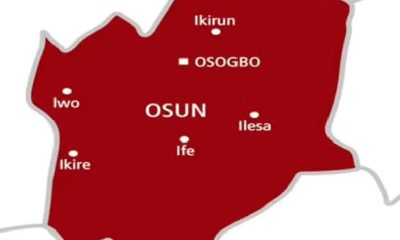
 Opinion5 days ago
Opinion5 days agoThe Clout-chasing Dipo Awojide By Comrade Da’Peace
-

 News4 days ago
News4 days agoRamadan, Lent: Shettima Calls For National Unity And Compassion
-
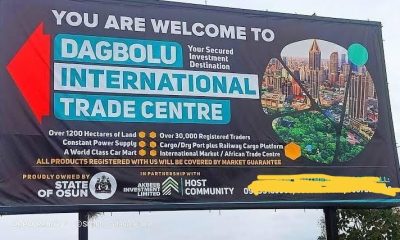
 Opinion4 days ago
Opinion4 days agoReinventing Osun’s Economy Through Dagbolu Intl. Trade Centre: From Quiet Market Lessons To Regional Trade Revolution By Adeboye Adebayo
-
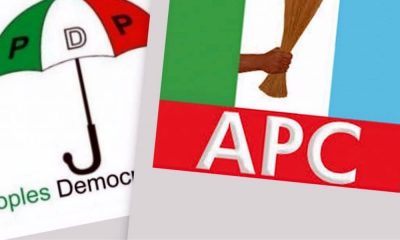
 News4 days ago
News4 days ago‘Wike Factor’: Another PDP Chairmanship Candidate Steps Down For APC In FCT



